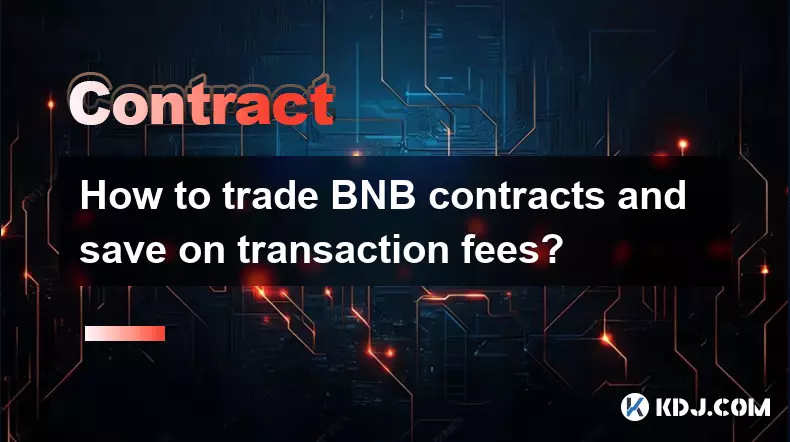-
 bitcoin
bitcoin $87959.907984 USD
1.34% -
 ethereum
ethereum $2920.497338 USD
3.04% -
 tether
tether $0.999775 USD
0.00% -
 xrp
xrp $2.237324 USD
8.12% -
 bnb
bnb $860.243768 USD
0.90% -
 solana
solana $138.089498 USD
5.43% -
 usd-coin
usd-coin $0.999807 USD
0.01% -
 tron
tron $0.272801 USD
-1.53% -
 dogecoin
dogecoin $0.150904 USD
2.96% -
 cardano
cardano $0.421635 USD
1.97% -
 hyperliquid
hyperliquid $32.152445 USD
2.23% -
 bitcoin-cash
bitcoin-cash $533.301069 USD
-1.94% -
 chainlink
chainlink $12.953417 USD
2.68% -
 unus-sed-leo
unus-sed-leo $9.535951 USD
0.73% -
 zcash
zcash $521.483386 USD
-2.87%
What is the essence of Bitcoin contracts
Bitcoin contracts facilitate legally enforceable agreements for the transfer of Bitcoin between parties, ensuring transparency, decentralization, and enhanced security through the utilization of blockchain technology.
Nov 12, 2024 at 02:03 pm

Bitcoin contracts are legal agreements that govern the transfer of Bitcoin between two or more parties. They are similar to traditional contracts, but they are specifically designed to account for the unique characteristics of Bitcoin.
Key Elements of Bitcoin Contracts:- Parties: Bitcoin contracts involve two or more parties, such as a buyer and seller, or a lender and borrower.
- Subject Matter: The subject matter of a Bitcoin contract is the transfer of Bitcoin. This can include the sale, purchase, loan, or exchange of Bitcoin.
- Terms: The terms of a Bitcoin contract specify the rights and obligations of the parties involved. These terms may include the price of the Bitcoin, the delivery date, and any other relevant conditions.
- Legality: Bitcoin contracts are considered legally binding in many jurisdictions. However, it is important to note that the legality of Bitcoin contracts may vary depending on the specific jurisdiction in which they are executed.
- Decentralization: Bitcoin contracts are decentralized, meaning that they are not subject to the control of any central authority. This makes them more secure and resistant to censorship.
- Transparency: Bitcoin contracts are recorded on the Bitcoin blockchain, a public ledger that is accessible to anyone. This transparency ensures that the terms of the contract are clear and verifiable.
- Security: Bitcoin contracts are protected by the same cryptographic security measures that secure the Bitcoin network. This makes them virtually impossible to tamper with or forge.
- Identify the parties involved: Determine who will be buying, selling, lending, or exchanging Bitcoin.
- Establish the subject matter: Specify the amount of Bitcoin that will be transferred and any other relevant details.
- Draft the contract: Create a written agreement that includes the terms of the contract, such as the price, delivery date, and any other relevant conditions.
- Review the contract: Have a lawyer review the contract to ensure that it is legally valid and enforceable.
- Sign the contract: All parties involved must sign the contract to signify their agreement to its terms.
- Record the contract: Store the contract on a secure platform, such as the blockchain, to ensure that it is tamper-proof.
- Bitcoin contracts are not legally binding: This is incorrect. Bitcoin contracts are considered legally binding in many jurisdictions.
- Bitcoin contracts are anonymous: This is not entirely true. While Bitcoin transactions are pseudonymous, the parties involved in a Bitcoin contract can be identified through the use of forensic analysis.
- Bitcoin contracts are secure: While Bitcoin contracts are secure, they are not immune to all forms of cybercrime. It is important to protect Bitcoin contracts by storing them on a secure platform and by using strong security practices.
Bitcoin contracts are a powerful tool for managing and transferring Bitcoin. They offer a number of advantages over traditional contracts, including decentralization, transparency, and security. By understanding the essence and benefits of Bitcoin contracts, you can harness their potential to enhance your business dealings and protect your Bitcoin investments.
Disclaimer:info@kdj.com
The information provided is not trading advice. kdj.com does not assume any responsibility for any investments made based on the information provided in this article. Cryptocurrencies are highly volatile and it is highly recommended that you invest with caution after thorough research!
If you believe that the content used on this website infringes your copyright, please contact us immediately (info@kdj.com) and we will delete it promptly.
- Big Apple Bets: Ripple Takes Europe, Google Stumbles in Seoul – A Global Payments Tug-of-War
- 2026-02-03 01:20:02
- Bitcoin Futures Face Fresh Collapse Concerns as Market Nerves Fray
- 2026-02-03 01:10:01
- Ozark AI Ignites Crypto Buzz: Strategic Listings Fueling 700x Price Acceleration Talk
- 2026-02-03 01:20:02
- Bitcoin Price Dips Below $80,000, Sparking Market Sell-Off and Liquidations
- 2026-02-03 01:10:01
- Rome's Trevi Fountain: A Two-Euro Ticket to Taming the Crowds
- 2026-02-03 01:00:02
- Justin Sun's $100 Million Bitcoin Bet: A Contrarian Play Amidst Crypto Winter
- 2026-02-03 01:15:02
Related knowledge

How to close a crypto contract position manually or automatically?
Feb 01,2026 at 11:19pm
Manual Position Closure Process1. Log into the trading platform where the contract is active and navigate to the 'Positions' or 'Open Orders' tab. 2. ...

How to understand the impact of Bitcoin ETFs on crypto contracts?
Feb 01,2026 at 04:19pm
Bitcoin ETFs and Market Liquidity1. Bitcoin ETFs introduce institutional capital directly into the spot market, increasing order book depth and reduci...

How to trade DeFi contracts during the current liquidity surge?
Feb 01,2026 at 07:00am
Understanding Liquidity Dynamics in DeFi Protocols1. Liquidity surges in DeFi are often triggered by coordinated capital inflows from yield farming in...

How to use social trading to copy crypto contract experts?
Feb 02,2026 at 07:40am
Understanding Social Trading Platforms1. Social trading platforms integrate real-time market data with user interaction features, enabling traders to ...

How to trade BNB contracts and save on transaction fees?
Feb 03,2026 at 12:39am
Understanding BNB Contract Trading Mechanics1. BNB contracts are derivative instruments traded on Binance Futures, allowing users to gain leveraged ex...

How to build a consistent crypto contract trading plan for 2026?
Feb 02,2026 at 10:59pm
Defining Contract Specifications1. Selecting the underlying asset requires evaluating liquidity depth, historical volatility, and exchange support acr...

How to close a crypto contract position manually or automatically?
Feb 01,2026 at 11:19pm
Manual Position Closure Process1. Log into the trading platform where the contract is active and navigate to the 'Positions' or 'Open Orders' tab. 2. ...

How to understand the impact of Bitcoin ETFs on crypto contracts?
Feb 01,2026 at 04:19pm
Bitcoin ETFs and Market Liquidity1. Bitcoin ETFs introduce institutional capital directly into the spot market, increasing order book depth and reduci...

How to trade DeFi contracts during the current liquidity surge?
Feb 01,2026 at 07:00am
Understanding Liquidity Dynamics in DeFi Protocols1. Liquidity surges in DeFi are often triggered by coordinated capital inflows from yield farming in...

How to use social trading to copy crypto contract experts?
Feb 02,2026 at 07:40am
Understanding Social Trading Platforms1. Social trading platforms integrate real-time market data with user interaction features, enabling traders to ...

How to trade BNB contracts and save on transaction fees?
Feb 03,2026 at 12:39am
Understanding BNB Contract Trading Mechanics1. BNB contracts are derivative instruments traded on Binance Futures, allowing users to gain leveraged ex...

How to build a consistent crypto contract trading plan for 2026?
Feb 02,2026 at 10:59pm
Defining Contract Specifications1. Selecting the underlying asset requires evaluating liquidity depth, historical volatility, and exchange support acr...
See all articles










































































